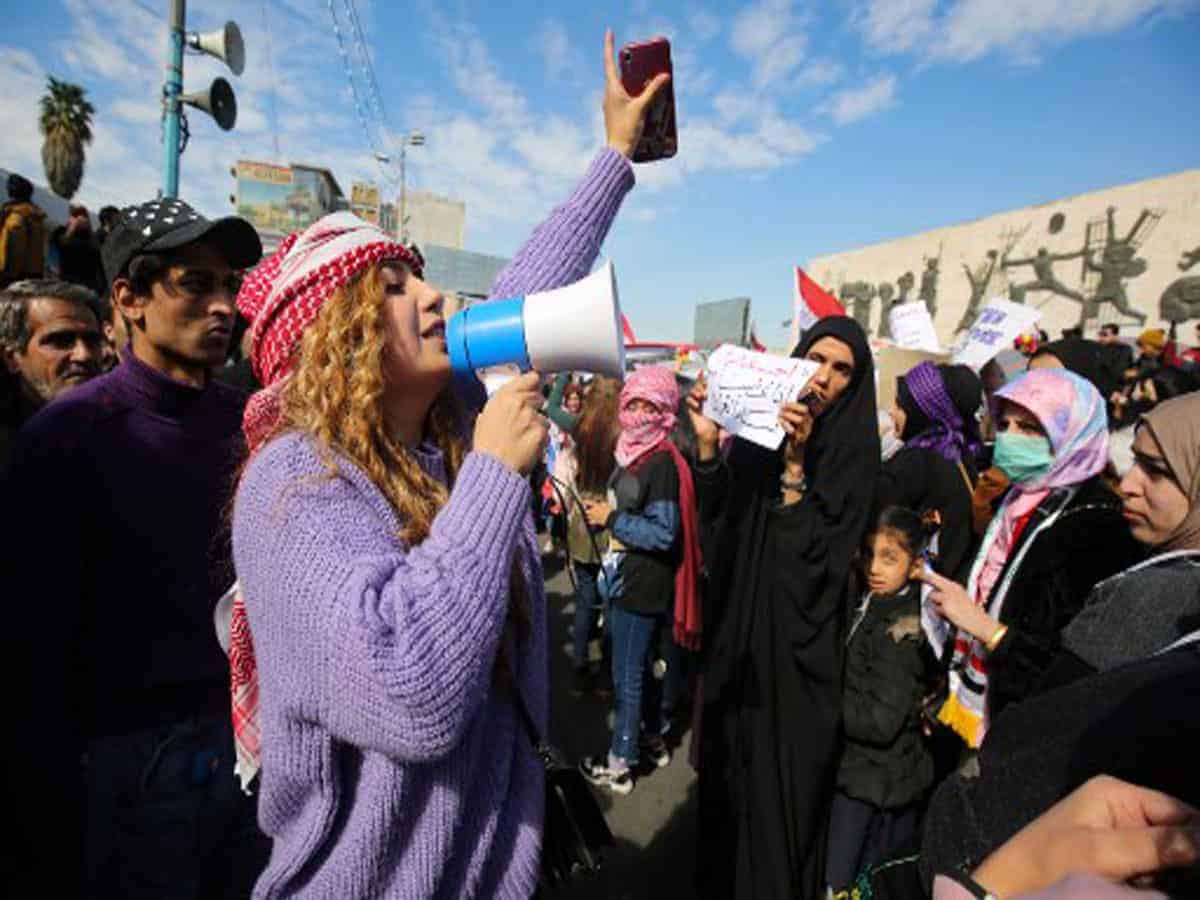Baghdad: Thousands of Iraqi women took to the streets across the country, defying a call by the influential Shia cleric Muqtada al-Sadr to separate men and women during protests.
Many of the anti-government demonstrators on Thursday wore pink scarves and chanted “all of them means all of them”, and “those are you daughters, homeland”, Efe news reported.
“We are marching to condemn the statements made by some clerics that degrade women’s dignity,” a university student told Efe.
She was referring to al-Sadr, who first backed the rallies that gripped Iraq last October but has recently distanced himself from the protest movement.
“We are the revolution. We are half of the society and we will not allow anyone to marginalize us.
“Those fundamentalists have forgotten that we are in the 21st century… they want us to go back to the dark ages,” the student protester added.
Iraqi female activists called for the march through social media after al-Sadr said in a tweet on February 8 that it was immoral for men and women to mix during the protests.
He took to Twitter again before Thursday’s march to say that the protests “are full of nudity, promiscuity, drunkenness, immorality and debauchery”.
Al-Sadr added that Iraq should not “turn into Chicago, full of moral looseness and homosexuality”.
There have regular been mass protests in Iraq since October 2019, with demonstrators demanding a new government and Parliament, as well as an overhaul of the country’s political system that has been in place since the 2003 US-led invasion.
Former Prime Minister Adel Abdel Mahdi resigned last November, bowing to the pressure of the protests.
Iraqi President Barham Saleh nominated Mohamed Tawfiq Allawi as premier, after two months of deadlock.
At least 544 people have been killed and more than 27,000 injured in the clashes that have taken place since the start of the anti-government protests, according to the Iraqi Human Rights Commission, with most of the casualties occurring at the hands of the security forces.
Among the injured were 17 security personnel and 3,525 protesters, according to Ali al-Bayati, a member of the commission.

